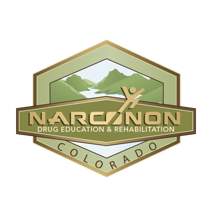The Importance of Self-Care in Addiction Recovery

During active addiction, people usually do not take very good care of themselves. Although addiction can cause a person to come off as selfish to others, they are not truly doing what is in their own best interest, but rather, what is in the best interest of fulfilling their addiction.
Simple things like taking care of one’s emotional, physical and mental health quickly go out the window. People lower their standards, boundaries, and expectations of how they should treat themselves and how they allow others to treat them. This is why it is so important to learn how to practice self-care in order to ensure continued success.
When we do not prioritize our own needs in order to lead a healthy life, we are sabotaging ourselves. There are two types of selfishness. One of them is negative because it hurts others without being considerate of their feelings. On the other hand, there is such a thing as “healthy selfishness”. The latter is about being true to ourselves, making our own well-being a priority and taking care of our needs so that we can be there for those we care about.
Saying “no” to someone may come across as selfish, but if the reason for saying no is to maintain personal boundaries, then there is nothing wrong with this—as long as it is done in a considerate and respectful manner. We cannot say “yes” to everything, we have to prioritize what is most important to us. When it comes to addiction recovery, sobriety must always be a top priority, otherwise, everything else of importance will fall out of place.
Some simple yet important acts of self-care when it comes to maintaining sobriety are:
1. Establishing healthy boundaries.
- Learn how to respectfully say no to people.
- Do not put yourself in compromising situations.
- Do not hang out with people who do not respect your recovery.
- Figure out what you do and do not want in your life and maintain your new standards.
- Healthy food

2. Making physical health a priority.
- Get an adequate amount of sleep each night.
- Eat an overall healthy diet in order to feel your best.
- Exercise regularly; it is a great way to handle and reduce stress.
- Seek medical care when needed and take care of yourself. If you don’t then no one else will.
3. Making mental health a priority.
- Make regular time to take care of yourself.
- Learn what your triggers are and how to best deal with them.
- Consistently work on doing things that help you grow mentally.
- Working hard is important, but so is taking time off when needed.
4. Making emotional well-being a priority.
- Make time to do things that you love.
- Break habits of negative self-talk and thinking patterns.
- As much as possible, avoid people who are consistently negative.
- Be mindful of the things that you allow to influence your life. (Music, movies, books, etc.)
5. Making sobriety a non-negotiable priority.
- Apply things that you have learned in treatment to your everyday life.
- Do not go to places and events that are focused on substance abuse.
- Do not allow the fear of offending someone to compromise your sobriety.
At the end of the day, the important thing is to always strive to live in a healthy, ethical and meaningful fashion because this is what will best help you maintain a drug-free life.


